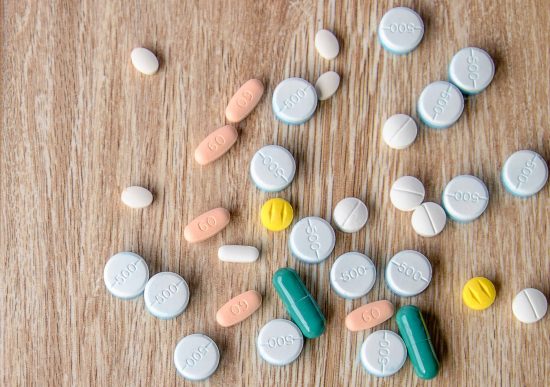Vaccinations & Medications
Whenever traveling outside your country it is advised to visit your GP or local travel clinic and planning your Kilimanjaro trek is no different. They will provide you with the most up to date, relevant information, required vaccinations and other preventive measures.
Vaccinations
| Type | Vaccination Duration | Comments |
| Cholera | No longer recommended. Only necessary if travelling from infected countries. | |
| Diptheria & Tetanus | 10 year booster | Recommended. Tetanus vaccinations last for ten years and are absolutely vital for visitors to Tanzania. The vaccination is usually given in combination with one for diphtheria. Once you’ve had five injections, you’re covered for life. |
| Hepatitis A | Up to 10 years | Recommended. This debilitating disease of the liver is spread by contaminated water, or even by using cutlery that has been washed in this water. The latest inoculation involves two injections; the first will protect you for three years, the second, taken six to twelve months later, will cover you for ten years. |
| Hepatitis B | For extended travel or high risk | |
| Polio | 10 year booster | Recommended. The polio vaccine used to be administered by sugar-lump, making it one of the more pleasant inoculations, though these days it’s more commonly injected. |
| Typhoid | Up to 10 years | Recommended. This disease is caught from contaminated food and water. |
| Meningitis A & C | 3 years | Long stay visitors, rural. This disease of the brain is often fatal, though the vaccination is safe, effective and lasts for three to five years. |
| Rabies | Long stay visitors, rural travel. If you’re spending some time with animals or in the wilderness, it’s also worth considering having a course of rabies injections, though it isn’t pleasant. | |
| Yellow Fever | Up to 10 years | Recommended. Yellow fever is a viral illness that has caused large epidemics in Africa and the Americas and which is spread by the bite of a mosquito. |
Malaria is endemic to the region, especially on the coast.
Malaria is transmitted by infected mosquitoes, which are most active in the early evening and night. If infection is suspected medical advice should be sought immediately. Malaria is detectable with a simple blood screen, but the sample is best taken during a high cycle of the fever when the infection is at its most active. Medications: Mefloquine one 250mg tablet weekly OR Doxycycline one 100mg capsule daily OR Malarone one tablet daily.
Medications

Some of the medicines that you may want to consider taking in your first aid kit are listed below. I recommend that you discuss these and any other medication for Kilimanjaro with your GP especially as some of these; such as Acetazolamide (Diamox) will require a prescription.
Ibuprofen/Nurofen
- Effective at relieving altitude induced headaches.
Anti-Allergy
- Hydrocortisone creams are steroids which can be used to treat inflammation following an insect bite or sting. Oral anti-histamines are also useful in the treatment of insect bites and stings as well as seasonal allergies such as hay fever.
Anti-Diarrhea
- Loperamide hydrochloride (Imodium) is good for the treatment of diarrhea; I also recommend diaorrylite sachets as they can be used to replace body fluids lost as a result of diarrhea.
Altitude Sickness Medicine (Diamox)
- Acetazolamide (diamox) is used for the treatment and prevention of altitude sickness; diamox does not mask the symptoms altitude sickness but actually helps to treat the problem. Side effects of taking diamox include; tingling of fingers, toes and face. Carbonated drinks tasting flat. Increased urination and occasionally blurred vision. It would be advisable to take a trial course prior to going to Kilimanjaro as any severe allergic reactions are easier to treat here than at a remote location.
Eye Drops
- These may be useful if you get dust or grid in your eyes.
Anti-Malarial Prophylaxis Medicine
- Consult with your General Practitioner or travel clinic about malaria prophylaxis.
Mosquito sprays and creams
- Not required on Kilimanjaro due to the altitude, but will be required before and after your ascent. It is advisable to have some “protection” against the Anopheles mosquito. Products containing diethyl toluamide (DEET) is recommended as the most effective form of bite-preventive treatment.
Sunscreen Cream
- I recommend a sunscreen with a high SPF (30+) as the sun near the equator is very strong.
Medical Facilities
Medical facilities in areas of Tanzania outside of Dar es Salam are limited. The Kilimanjaro Christian Medical Center in Moshi is the nearest hospital providing Anesthesia, Child Health and Pediatricians, Dental Care and Oral Hygiene, Ear – Nose – Throat, Eye Ophthalmology, General Surgery, Gynecology/Obstetrics, Internal Medicine, Dermatology, Orthopedics, Urology, Casualty and Emergency Medicine. There are also medical facilities at; Mount Meru Government Hospital, Arusha and Selian Lutheran Hospital – Arusha.
Fortunately, the ailments you’re likely to encounter in East Africa are easily treated and rarely life-threatening. The most common ailment is an upset stomach, and most of the time this is the result of your body adapting to the bacteria of East African cuisine and water.
African medical facilities have a terrible reputation because of the prevalence of AIDS and other serious diseases. However, for the more common ailments you’re likely to encounter, diagnosis and treatment can be accomplished without ever drawing blood or cutting into the body.
This page is for the purpose of providing general information about potential health issues related to visiting Kilimanjaro in Tanzania. This is not a medical guide.
More resources on high-altitude mountaineering:
- High Altitude Medicine Guide (www.high-altitude-medicine.com)
- British Mountaineering Council (www.thebmc.co.uk)
- World Health Organization (www.who.int/en)
- Centers for Disease Control and Prevention (www.cdc.gov)